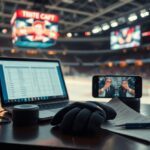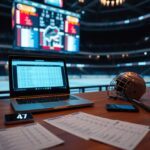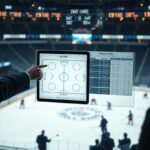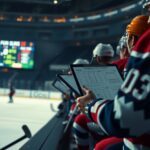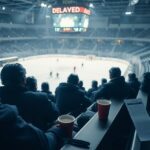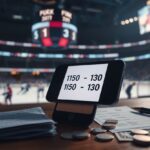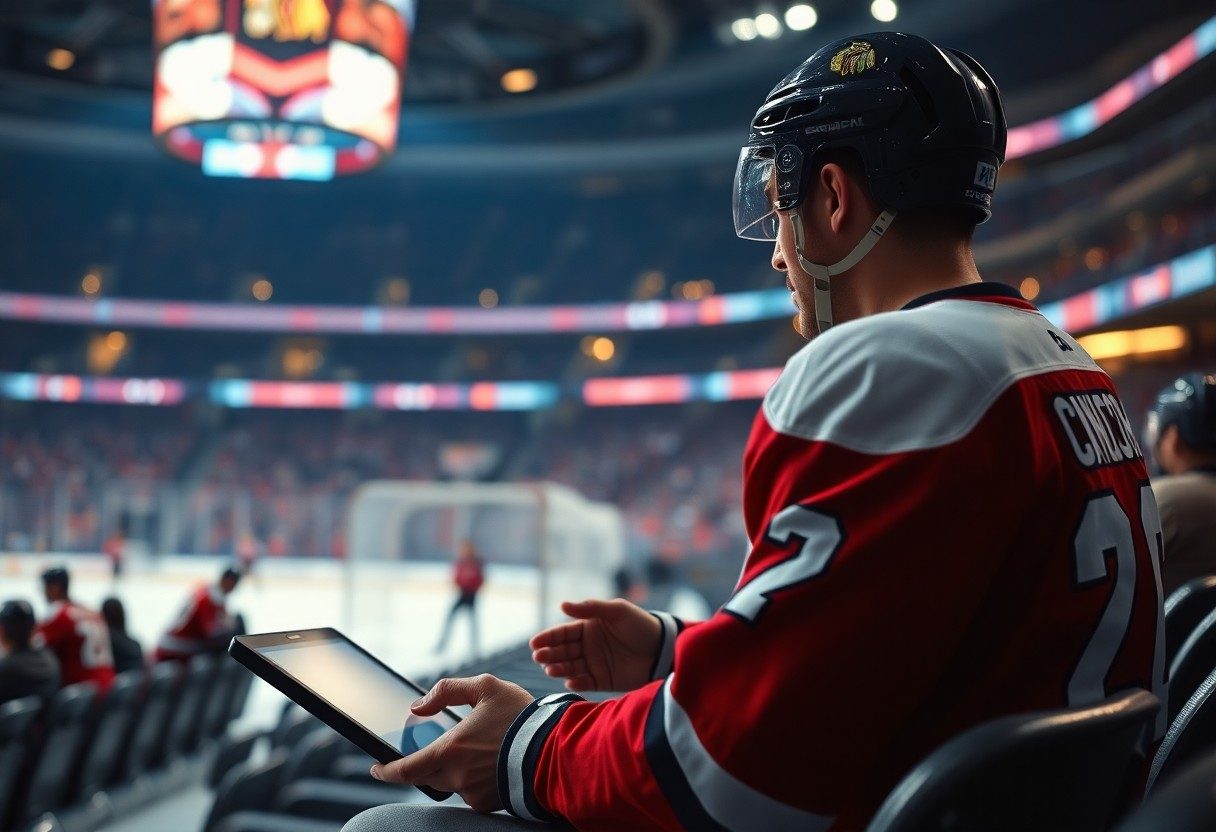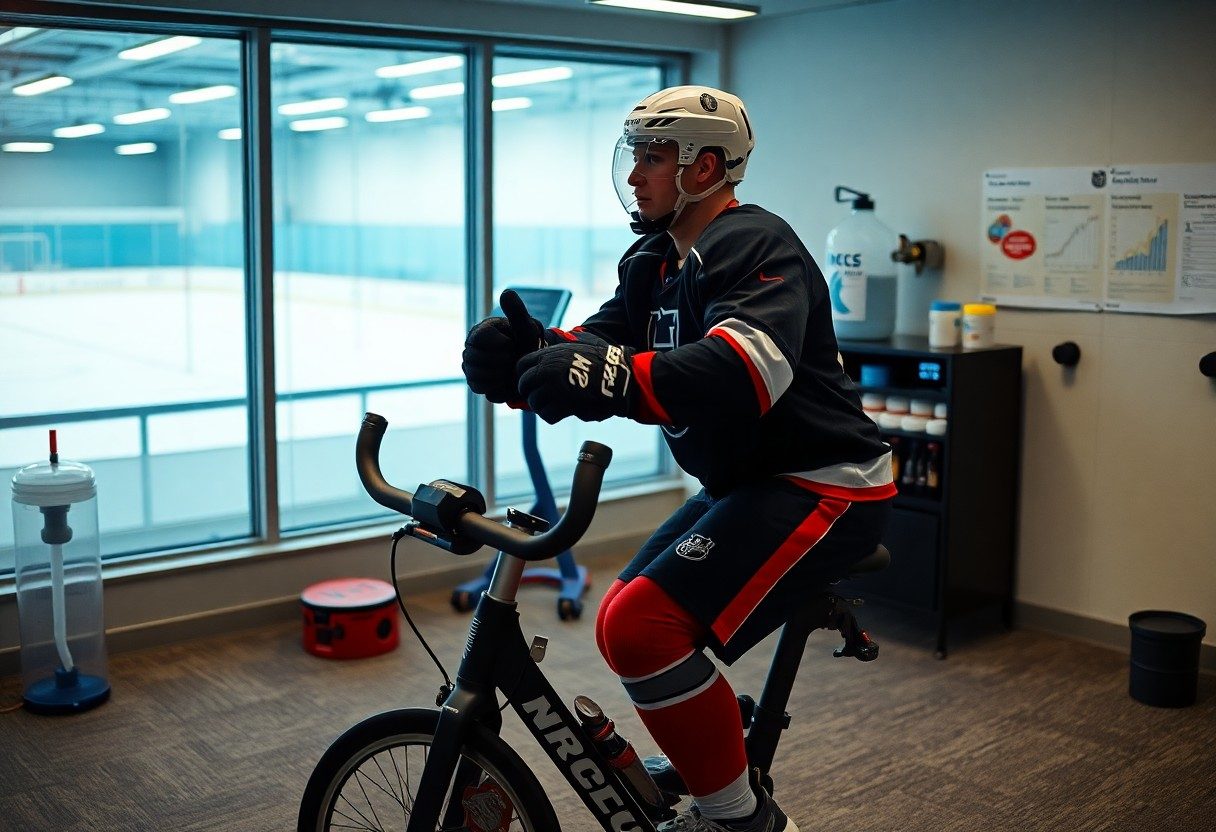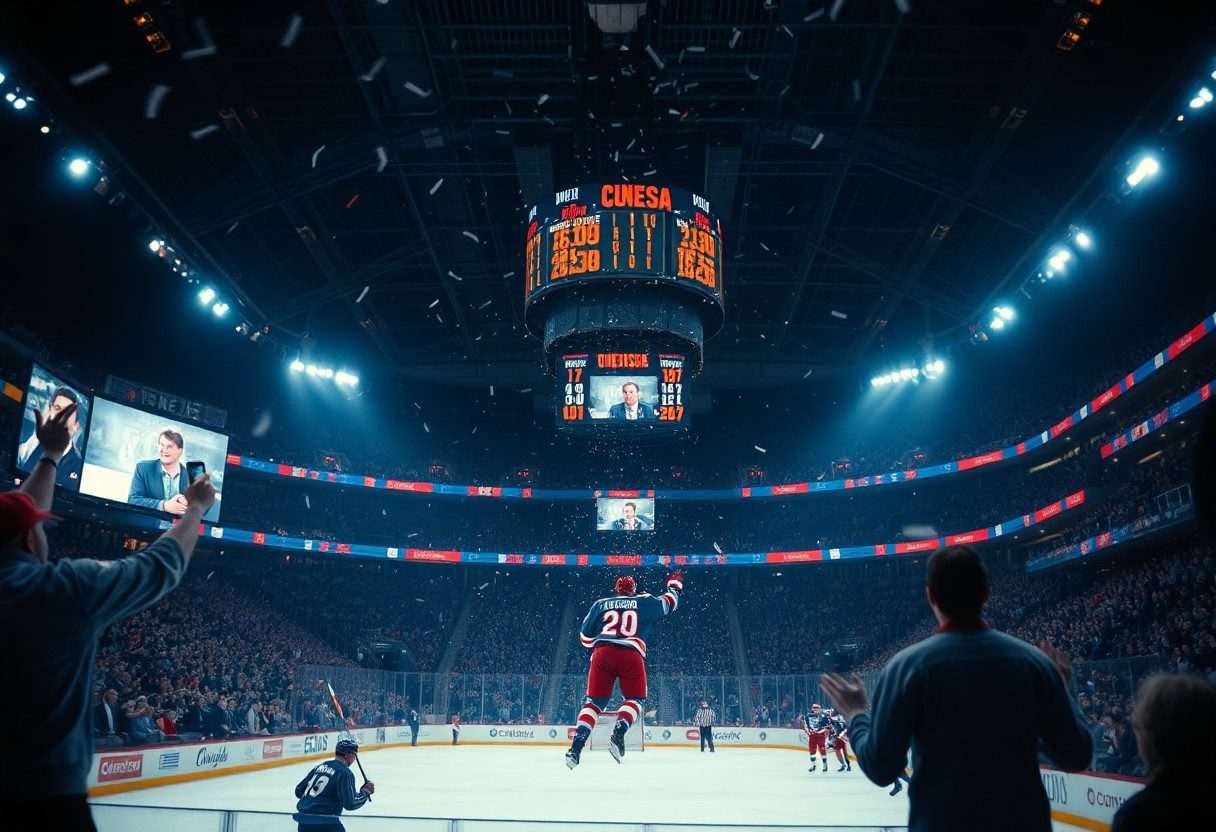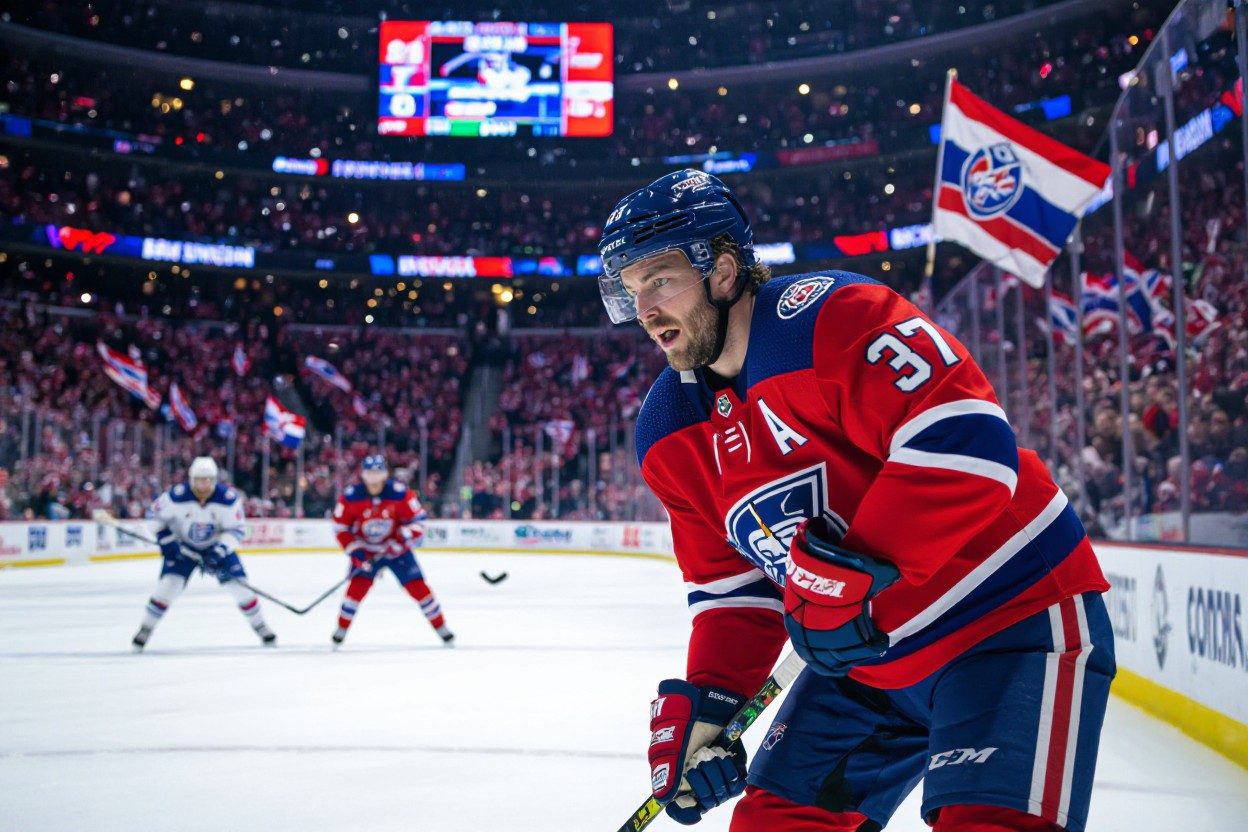Focus is a defining trait of successful NHL players, enabling them to withstand the pressures of elite competition. This guide explores into how these athletes cultivate mental fortitude and develop resilience amidst intense scrutiny and high-stakes situations. By harnessing techniques such as visualization, mindfulness, and goal-setting, players enhance their performance and maintain clarity under pressure. Understanding the mental game offers valuable insights into the psychology behind athletic success, applicable beyond the ice rink.
Types of Mental Strategies
NHL players employ a variety of mental strategies to enhance their focus and resilience. Understanding these methods can provide insight into how they maintain peak performance under pressure. Some of these strategies include:
- Visualization
- Mindfulness
- Positive Self-Talk
- Goal Setting
- Routine Establishment
The combination of these techniques helps athletes bolster their mental game.
| Strategy | Description |
| Visualization | Imagining successful outcomes to enhance performance. |
| Mindfulness | Staying present to manage stress and improve focus. |
| Positive Self-Talk | Reinforcing confidence and self-belief. |
| Goal Setting | Defining clear, achievable objectives. |
| Routine Establishment | Creating consistency to reduce anxiety. |
Visualization Techniques
Visualization techniques are widely used by NHL players to mentally rehearse their performance. They often picture themselves executing plays flawlessly, which builds muscle memory and confidence. By creating vivid mental images of themselves succeeding, players can enhance their focus and reaction times during the game.
Mindfulness and Meditation
Mindfulness and meditation are important for enhancing emotional regulation and reducing stress among NHL athletes. These practices equip players with tools to regain their composure during intense moments, often involving breathing exercises that refocus their attention. Studies indicate that techniques such as mindful breathing can significantly lower performance anxiety, allowing players to concentrate on the task at hand.
Through consistent practice, mindfulness can create a heightened awareness of thoughts and feelings, helping athletes recognize when distractions arise. NHL players often engage in meditation to cultivate this awareness, ultimately improving their resilience during high-pressure scenarios. Reports show that athletes who utilize mindfulness techniques experience increased emotional stability, allowing them to bounce back from setbacks more effectively on the ice.
Key Factors for Building Focus
To excel in the NHL, players harness several imperative factors to foster their focus. These include maintaining a dedicated practice routine, developing a strong mental framework, and engaging in positive self-talk. Regular visualization techniques enhance performance by creating a mental map of desired outcomes. Furthermore, players learn to eliminate distractions by setting boundaries during training and game preparation. Perceiving the game through a focused lens allows athletes to make quicker decisions under pressure.
Setting Clear Goals
Successful players establish clear goals to provide direction and motivation. These goals often encompass both short-term achievements, like scoring a particular number of points per game, and long-term aspirations such as winning the Stanley Cup. By breaking down large objectives into manageable steps, they enhance focus and maintain resilience amidst challenges.
Understanding Stress and Pressure
NHL players frequently face stress and pressure, making it important to develop coping strategies. Recognizing individual responses to stressors—such as game day jitters or media scrutiny—helps players adapt their mental approach. Techniques like mindfulness and breathing exercises become part of their pre-game rituals, equipping them to handle high-stakes situations and maintain optimal performance levels.
Understanding stress and pressure involves not just recognizing emotional responses, but also addressing physiological reactions. During games, adrenaline surges can lead to heightened anxiety, disrupting focus. Players like Jonathan Toews emphasize using routines to ground presence—his pre-game meditation helps clarify thoughts and enhance composure. Post-game reflections also provide insights; analyzing performances under pressure allows players to assimilate lessons learned, fostering greater mental fortitude for the next challenge.
Tips for Enhancing Resilience
Resilience in NHL players is developed through various strategies that strengthen their mental fortitude. Here are some effective tips:
- Practice positive self-talk
- Embrace failure as a learning opportunity
- Set achievable goals to build confidence
- Develop a strong support network among teammates
- Utilize visualization techniques to prepare mentally
Thou must prioritize these techniques to cultivate lasting resilience.
Positive Self-Talk
Implementing positive self-talk can significantly influence a player’s mental state. By replacing negative thoughts with affirmations, players create a more encouraging environment for themselves. This practice not only boosts confidence but also combats doubts that can arise during high-pressure games.
Embracing Failure and Learning
Learning from setbacks is fundamental for growth in the league. Embracing failure involves analyzing mistakes without self-deprecation, transforming them into powerful teaching moments. Through this mindset, players access a deeper understanding of their skills, ultimately enhancing performance in future games.
Focusing on the lessons that stem from failure cultivates a growth-oriented mindset; an athlete may study failed plays after a game, identifying key moments for adjustment. For instance, Wayne Gretzky famously treated every miss as an opportunity, leading to an extraordinary career built upon resilience and relentless improvement. This approach ensures players not only recover from disappointments but actively leverage them for success.
Step-by-Step Approach to Mental Training
| Developing a Routine |
Creating a consistent daily routine helps NHL players establish mental habits that enhance focus. This may involve scheduled practices, visualization exercises, and mindfulness sessions, allowing players to prepare mentally for games and recovery periods. |
| Tracking Progress |
Regularly assessing mental training outcomes becomes necessary for players. By documenting daily performance and feelings, players can identify patterns and areas needing improvement, refining their mental game effectively. |
Developing a Routine
The importance of a structured routine cannot be overstated. Top NHL players often engage in *pre-game rituals* that might include stretching, meditation, and visualization to mentally prepare. For example, *Sidney Crosby* follows a specific warm-up sequence that not only boosts his focus but also eases anxiety, allowing him to enter the game confidently.
Tracking Progress
NHL players benefit greatly from tracking progress in their mental training. By maintaining a journal or using apps, they can record their emotional states, visualize successes, and evaluate their mental state post-games. This practice reveals strengths and weaknesses, creating a clear path for mental development.
Tracking progress is a systematic process, often involving various metrics like performance feedback and emotional check-ins. Players may jot down specific instances of focus during games, noting how particular mental exercises impacted their play. Over time, these records help identify effective techniques, reinforcing positive habits while pinpointing aspects requiring adjustment. With data in hand, players can collaborate with sports psychologists to refine their approach and ensure continued mental growth.
Pros and Cons of Mental Training
| Pros | Cons |
|---|---|
| Improves focus and concentration | Can lead to overthinking |
| Enhances resilience under pressure | Requires time and commitment |
| Increases emotional regulation | Might create dependency on techniques |
| Boosts overall confidence | Not all methods work for everyone |
| Improves team dynamics | Potential for burnout |
| Facilitates recovery from setbacks | May cause anxiety if expectations rise |
| Encourages a growth mindset | Can be costly if requiring professional guidance |
| Enhances visualization skills | Short-term focus might overshadow long-term growth |
| Promotes better decision-making skills | Requires continuous practice to maintain benefits |
| Strengthens mental toughness | May become unproductive if overemphasized |
Benefits for Performance
Mental training significantly enhances player performance by sharpening focus and enabling them to stay composed during high-pressure situations. Techniques like visualization and positive self-talk empower athletes to better manage stress and anxiety, leading to improved decision-making on the ice. For instance, research shows players who used mental rehearsal scored an average of 15% higher in clutch situations. With such benefits, athletes often report feeling more confident and prepared when facing opponents.
Potential Drawbacks
Despite the advantages, mental training presents challenges that players must navigate. Overthinking can hinder natural performance, while the pressure to constantly enhance mental fortitude may lead to burnout. Additionally, individuals might struggle with the integration of various mental techniques, especially if they don’t yield immediate results. As players probe deeper into their mental game, the risk of developing an unhealthy dependence on these techniques grows, potentially disrupting their performance.
Additionally, there’s a fine line between sufficient mental preparation and excessive mental burden. Players who obsessively focus on perfecting their mental game might inadvertently create more pressure for themselves, leading to underperformance. Some may experience anxiety over the effectiveness of their mental strategies, worrying whether they can replicate past successes. Striking a balance is vital—players must cultivate resilience and focus while ensuring they remain fluid and intuitive in their gameplay.
Expert Insights and Advice
Incorporating insights from seasoned professionals, this section highlights methods NHL players employ to sharpen their mental game. Their strategies not only enhance on-ice performance but also fortify personal resilience, demonstrating how cognitive skills can be as vital as physical prowess in achieving greatness in the NHL.
Quotes from NHL Players
NHL players consistently emphasize the importance of mental fortitude. For instance, one noted, “In high-pressure moments, it’s not just about skill; it’s about who can stay calm and focused.” Such statements underline that the psychological aspect of the game often dictates outcomes just as much as physical ability.
Commentary from Sports Psychologists
Sports psychologists stress that mental resilience can be trained like a muscle. They advocate for visualization techniques and mindfulness, which help athletes manage stress and perform under pressure. For example, practices focused on building a “growth mindset” have shown to enhance player adaptability and focus during critical moments in matches.
Research indicates that adopting a growth mindset enhances resilience significantly. Sports psychologists suggest integrating techniques such as visualization and mindfulness into daily routines, enabling players to envision successful outcomes while maintaining calmness. Furthermore, studies reveal that athletes who embrace challenges and view setbacks as opportunities for improvement are more likely to thrive under pressure. This psychological foundation facilitates not only better performance in games but also long-term career sustainability in the demanding environment of professional hockey.
Conclusion
Presently, the mental game plays a pivotal role in the success of NHL players, emphasizing the importance of focus and resilience. By employing techniques such as visualization, mindfulness, and mental conditioning, athletes develop the mental fortitude necessary to thrive under pressure. Understanding these strategies not only enhances performance on the ice but also contributes to overall well-being. The integration of mental training into their routines illustrates that success in hockey extends beyond physical skills, highlighting the indispensable nature of mental preparation in achieving peak performance.
FAQ
Q: What is the primary focus of “The Mental Game – How NHL Players Build Focus And Resilience”?
A: The primary focus of the book is to explore the mental strategies that NHL players use to enhance their concentration, manage pressure, and develop resilience both on and off the ice. It investigates into techniques such as visualization, relaxation exercises, and mindfulness practices that contribute to peak performance.
Q: How do NHL players incorporate mental training into their routines?
A: NHL players often integrate mental training by working with sports psychologists, engaging in mental conditioning sessions, and practicing visualization techniques. These routines may include setting specific mental goals, maintaining a positive mindset, and utilizing breathing exercises to manage anxiety and maintain focus during high-stress situations.
Q: What role does resilience play in an NHL player’s performance?
A: Resilience is key for NHL players as it allows them to quickly bounce back from setbacks, such as losses or injuries. The book highlights how players develop mental toughness through facing challenges, learning from failures, and maintaining motivation, which ultimately contributes to sustained performance and success in their careers.
